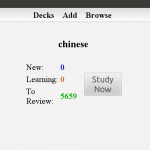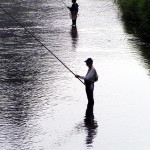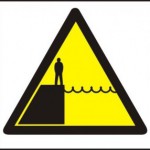You searched for listening | Page 27 of 32 | Hacking Chinese Page 27
-
Flashcard overflow: About card models and review directions
The question of how to design flashcards is faced by all learners who use them. What should you put on the front? What should you put on the back? Should you add single characters or whole words? Or perhaps sentences are better? The general answer is that it depends and this article discusses some of the factors the answers depend on.
Read → -
Learning how to fish: Or, why it’s essential to know how to learn
Learning how to learn Chinese is an essential skill for any student, regardless if you study on your own or in a course. This article explains why going to class is not enough.
Read → -
Two reasons why pronunciation matters more than you think
Good pronunciation matters, whether you like it or not. In general, students (and teachers) tend to stop caring about pronunciation much earlier than they should. You don’t need to aim for native-like pronunciation, but clear and easily-understood Chinese should be the goal of all students. In this article I present two arguments: one about the fact that pronunciation and communication are closely linked, one about how pronunciation reflects both you as a person and your other skills.
Read → -
Easing yourself into reading novels in Chinese
Reading a novel in Chinese is the goal for many learners, but perhaps it’s easier to accomplish than you think. This article discusses various methods of making novel reading easier in Chinese, mainly focusing on the benefits of re-reading books you are already familiar with and know you like because you’ve read them before in your native language.
Read → -
A language learner’s guide to wuxia novels
Wuxia can be used as a key to both Chinese language and culture. This article is meant to be a guide to second language learners. If you want to read wuxia in Chinese, where do you start? How do you approach these novels? How do I find one which isn’t too hard? You will find the answers here!
Read → -
25 books I’ve read in Chinese, with reviews and difficulty ratings
I set the goal of reading 25 books in one year. This article is about the 25 books I read and is meant to serve as encouragement and inspiration. You might also find a book or two you want to read yourself! At the end of the article, I discuss my reading habits in general as well.
Read → -
Chinese reading challenge: Read more or die
You don’t read as much in Chinese as you should and January is the month that will change. The challenge starts on January 1st and the goal of reading as much as possible in Chinese in one month. This article contains not only more information about the challenge, but also lots of tips and tricks for reading (more) in Chinese!
Read → -
Chinese immersion with Carl Gene Fordham
It’s widely known that immersion is an effective way of learning languages, but the details are less clear. How do you go about it? This article contains an interview with Carl Gene Fordham, who has many interesting things to say about how he learnt Chinese to an advanced level, as well as how we continued from there and became a translator and interpreter.
Read → -
Asking the experts: How to bridge the gap to real Chinese
Many students of Chinese think that it’s hard to bridge the gap from textbook Chinese to the Chinese used by native speakers in the real world. This article contains useful insights and hands-on advice from more than 20 language learners and teachers. The overall message is encouraging: the gap can certainly be bridged, you just need the right attitude and the right method!
Read → -
Preparing for rainy days and dealing with slumps
We all experience slumps in our learning, but there are many things we can do to reduce the negative effects of these slumps. The solution is three-fold: Preparing for the slump before it hits you, finding learning activities that don’t feel like work and paying attention to what you feel capable of at the moment. You will still experience slumps, but hopefully they will be less severe!
Read →








